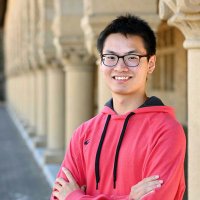
Alan Cheng
@alan7cheng
PhD student @stanfordhci. Interested in learning, teaching, technology, and games!
Previously @messenger, @cs_cornell.
ID: 1300211803373236224
30-08-2020 23:20:35
22 Tweet
43 Followers
37 Following



Stanford is offering its popular computer science intro course for free—and you can help teach it. (By Mehran Sahami Chris Piech Julie Zelenski @LisaEinstein) scientificamerican.com/article/how-we…


Dan Schwartz, Dean Stanford Graduate School of Education shows how contrasting cases are key to learning about different concepts. e.g., we understand wine by trying other types. More concretely, e.g., we learn what a polygon is by also seeing negative examples. People did 2x as well w/ this. #AugmentHAI




based on his experiences teaching Stanford's intro CS course w/ section leaders and scaling that human-centered teaching to 10k students worldwide, Chris Piech (Chris Piech) believes there's a huge group of willing teachers who are an untapped resource in scaling ed #AugmentHAI







"Learning is such a deep social activity, core to who we are as humans, says Chris Piech in our education panel. “One of the things that seems to happen in the online learning world is it’s less social. I don't think there is a future in education that is not social.” #AugmentHAI







I'm delighted to continue to work with Chris Piech, James Landay, Noah Goodman, Dan Schwartz, Jenny Langer-Osuna & John Mitchell and amazing students to transform AI for education!



![Alan Cheng (@alan7cheng) on Twitter photo Candace Thille: "The key here is to look at this as a whole system: what the [AI] can do and what humans can do. Really think about [...] the decisions each of the human actors have to make to optimize learning. What parts of those decisions can we have [AI] support?" #AugmentHAI Candace Thille: "The key here is to look at this as a whole system: what the [AI] can do and what humans can do. Really think about [...] the decisions each of the human actors have to make to optimize learning. What parts of those decisions can we have [AI] support?" #AugmentHAI](https://pbs.twimg.com/media/ExWqwd-VEAMyhQP.jpg)



